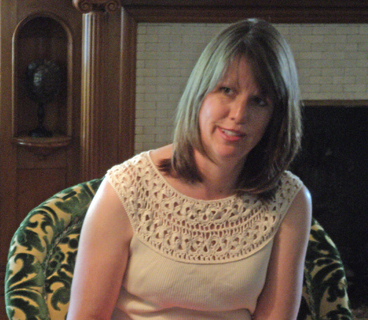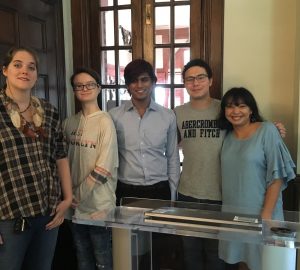
As a part of spring’s Ivy Hall Writers Series, Elizabeth Kostova, author of the “The Historian” and “The Swan Thieves,” will be leading workshops with students through the end of next week and will give a reading and lecture on April 21 that’s open to the public.
Kostova received her undergraduate degree from Yale University and an M.F.A. from the University of Michigan. A recipient of the Hopwood Award in 2003 for her novel-in-progress and the Quill Award for debut author of the year in 2005, Kostova’s first novel, “The Historian,” climbed to the top of the bestseller lists in its first week on the shelves.
Her impressive narrative skill resembles the storytelling ability of classical Victorian writers, while introducing the reader to a myriad of sights, smells and sounds from Spain, Budapest, Romania and Istanbul, in which “The Historian” is set. The novel follows the footsteps of historical figure Vlad the Impaler through universities, archives and libraries, in search of Dracula’s tomb. It pays allegiance to Bram Stoker’s “Dracula” and resembles the varying timeline of A. S. Byatt’s “Possession.”
Over breakfast at Ivy Hall this Monday, Kostova talked about her creative process, passion and her pursuit of the historical narrative.
“I love ‘once upon a time’ when the time is researched,” Kostova said, when asked to choose between narrative writing and history. “I feel so pulled in the direction of literature and the direction of history. I work hard for a balance of those in my writing, but if I had to answer in a stark way then I would have to choose storytelling.”
Kostova values the ability of research to immerse the reader in an entirely different, yet recognizable world. Her first novel is a testament to her respect and love for history.
“When things are going well, if we can call that inspiration — I think of it as absorption — and the world of the story takes over,” Kostova said. “My main motivator when facing the page is to try and write better all the time. I think that’s something we all want for our work, but if that dream dies, then I think we are in trouble as writers.”
At SCAD, students’ pursuit of their respective crafts is constantly challenged by the responsibilities of everyday life. According to Kostova, that task is constant for the creative individual.
“When writing “The Historian,” it became very important to me to finish it. I wrote it mostly in private for 10 years around the edges of a lot of other responsibilities — a lot of working to make a living,” Kostova said. “I didn’t have the sense, at least for a very long time, that it would even necessarily find a publisher.”
The fear of rejection is an ever-present reality, but as SCAD Atlanta professor of writing, Dr. Stephanie Batcos, has said, there’s nothing inspiring about playing it safe. According to Batcos, the writing process is losing oneself in the art, while discovering a different world en route.
“In my experience most people who engage in some form of creative activity, especially in the arts — not everyone I’ve met, but most of them — were that way in childhood,” Kostova said. “They didn’t necessarily discover something in particular they wanted to do with it as children, but they had a creative approach.”
Kostova talked about the importance of a writer’s persistence and discipline, referencing W.B. Yeats’ process of waking early in the morning, dressing nicely and eating breakfast at seven o’clock, while he waited for his muse.
“Ultimately, if people are determined to harness [creativity] and make it a way of life, they do learn to sit down and say, ‘I don’t feel very creative today, but I’m going to work on my novel,’” Kostova said. “It’s a gift, a present for your life, to have that urge to reinterpret the world and make something that’s never been there before.”
Kostova will be visiting different SCAD writing classes over the course of the next two weeks. She suggests that students ask tough questions about the intricacies of the creative process. “That’s what I’m here for,” Kostova said.
For more information on Elizabeth Kostova’s reading and lecture, click here.



























